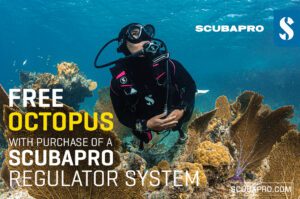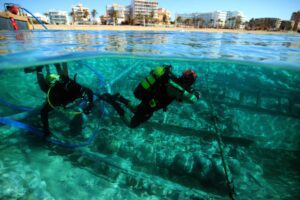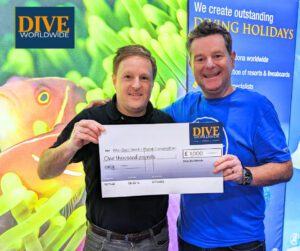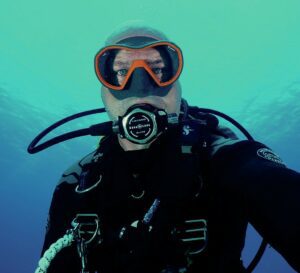PT Hirschfield chats to NSW-based photographer, major contributor to documentary films (Ocean Souls, 2020 and Collision, 2022) and international whale swim guide Scott Wilson.
A Dream Becomes Reality
In his early 20s, Scott Wilson had a vivid dream: ‘I was in shallow water. A giant octopus lassoed me with its tentacles and transported me into deep ocean. It was like deep space.
Huge entities like whales moved around me. The Kraken told me that this is where I needed to be.’ That dream only made sense to Scott when he was in the Azores 20 years later, chasing sperm whales over thousands of metres of water: ‘I realised ‘Woah! This is what that dream was about all those years ago!’, but through no conscious creation of my own.’
Growing up in Sydney followed by 20 years in Byron Bay, Scott’s childhood was infused by images of Flipper, Jacques Cousteau, Ron and Valerie Taylor and Ben Cropp. Already a keen snorkeller and spearfisher, Scott started scuba diving at age 12. A decade ago as an adult with a Diploma of Marine Science, he realised it was better to shoot animals with a camera, rather than with a spear: ‘I became much more conservation-minded. If I do spear at all now, I only spear sustainable pelagic fish, purely for food. I’m not spearing as a pastime anymore.’
A Shift from Spearfishing to Conservation
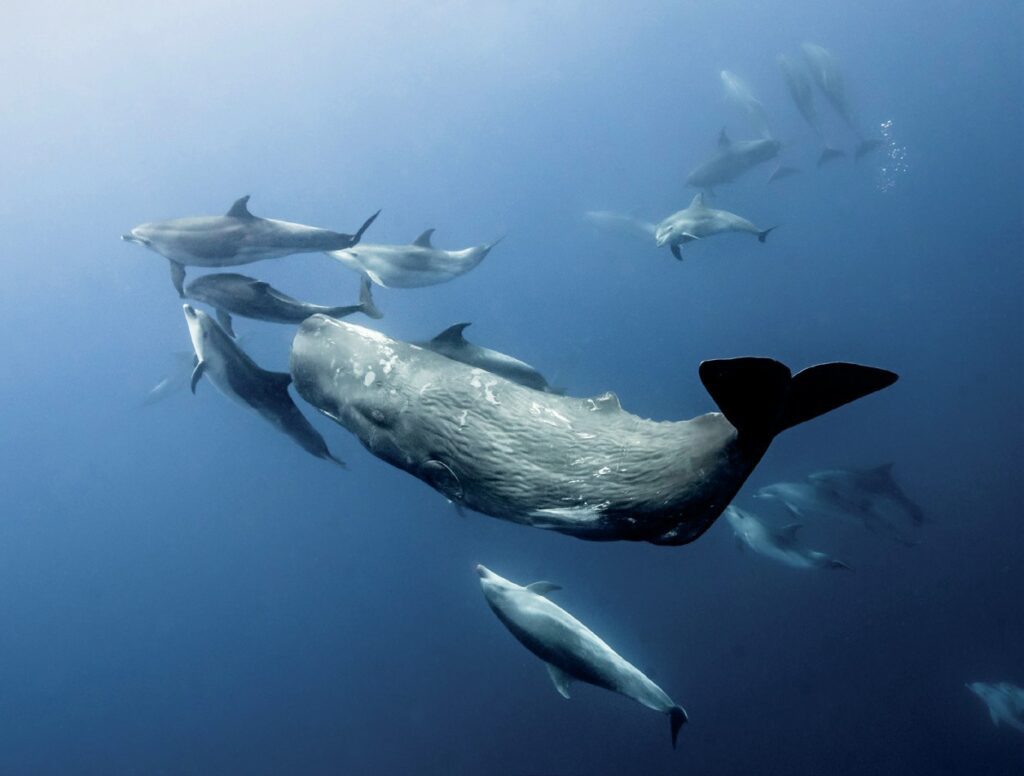
After 15 years of working with First Nations people in performing arts and cultural education, Scott now dedicates his energy to help people make connections with cetaceans. He leads whale swims locally through Blueseafaris Whale Swims from Tweed Heads (NSW northernmost coastal city), and abroad in Timor, Tonga, Sri Lanka and the Banda Sea. Scott creates stunning still images and cinematography to help audiences understand marine mega fauna magnificence against the backdrop of human threat posed to cetaceans across the globe.
Connecting People with Cetaceans
During whale season at Tweed Heads (directly offshore from Coolangatta), Scott aims to deliver whale swim experiences that are meaningful to his customers, but more importantly, an experience that is respectful of the whales themselves: ‘We’ve got about an 80% success rate. I’m very patient.
I just try to sit with the whales, get their curiosity and get them to approach. We’ll see whales, often breaching, finslapping and waving their tails. We observe their behaviour up close. If you get an in-water encounter, consider yourself really lucky.
‘We have a small boat so it’s an intimate experience regardless. I’ve had people who’ve seen whales and had them interacting near the boat. They’ll say ‘We don’t understand why we didn’t swim with the whales’ and I’m like ‘Well the whales didn’t want to swim with us today’. And they say ‘But we booked on the trip!’ You can’t just expect it to happen. You’re not buying a ticket to SeaWorld or a roller coaster. They’re not performing circus animals.’
An Intimate and Respectful Whale Swim Experience
‘Sometimes the whales will come in for a minute and it’s a glimpse and that’s it. This season, we had multiple swims of over an hour and a half with around six whales. Swimmers were bunched in the water floating, and the whales came back to them over again.’
‘We had them go under people, blowing big jet streams of bubbles. The whales were enjoying it as much as the people. In that same encounter, we had over 20 bottlenose dolphins in with the whales. I had to pull everyone out of the water with whales still there as we were running out of daylight and had to be back in before dark.’
‘For a lot of people, having that eye-to-eye or close encounter with a whale in its environment is life changing. People’s lives are touched in a powerful way and they talk about it to others. The benefit for whales is the change of perception in the human world. People protect what they love. It changes the way they live and move in the world, and they become ocean advocates.’
The Impact of Whale Encounters on Human Perception
Scott’s desire to foster cetacean awareness and advocacy is also evident in his documentary film-making projects. While initially focussed on taking still images of whales, dolphins and sharks, Scott had previously worked as a camera operator on programmes for the Discovery Channel, his underwater focus now increasingly shifting gears in that direction: ’Now it’s not so much creating beautiful images, but it’s more about telling a bigger story.’
Cetacean Awareness through Documentary Filmmaking
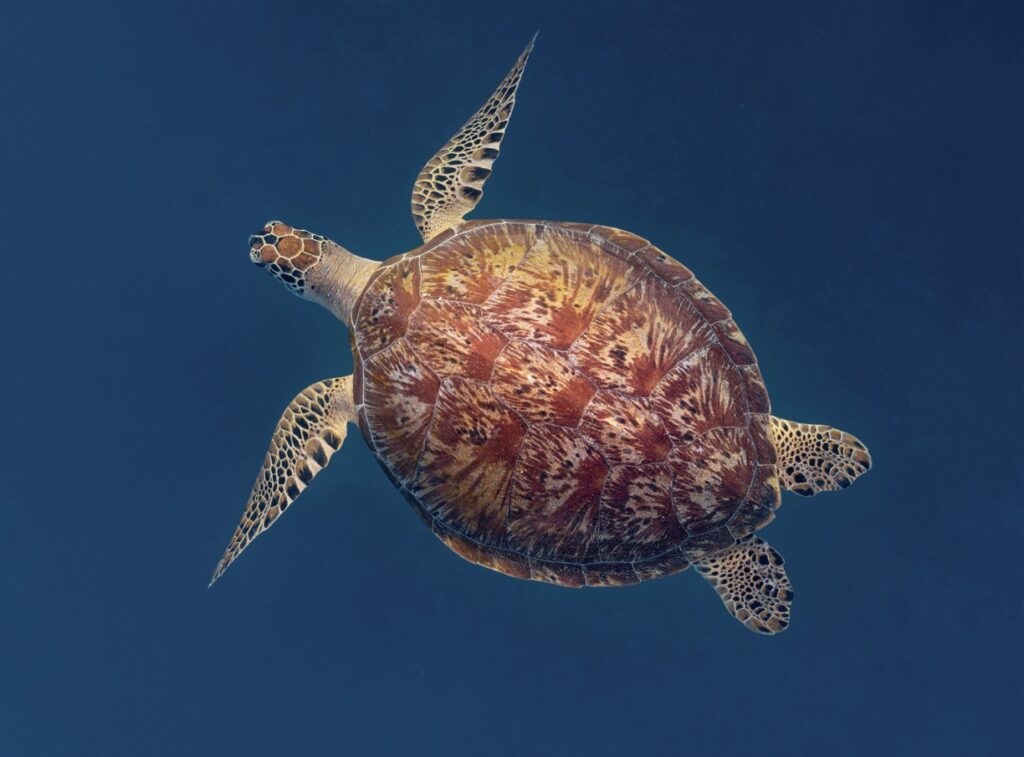
Scott was Director of Photography and Development Producer of Ocean Souls (available on iTunes). This film – stitching together the contributions of many image makers and scientific collaborators across the globe – focuses on the lives of cetaceans and their innate intelligence, the complexity of their communication and their language.
‘We really wanted to show their beauty and how similar they are to humans in so many ways. They’re highly intelligent, social mammals just like us. They’re the People of the Sea and more than worthy of our respect, protection and consideration.’
Ocean Souls: Showcasing Cetacean Intelligence and Beauty
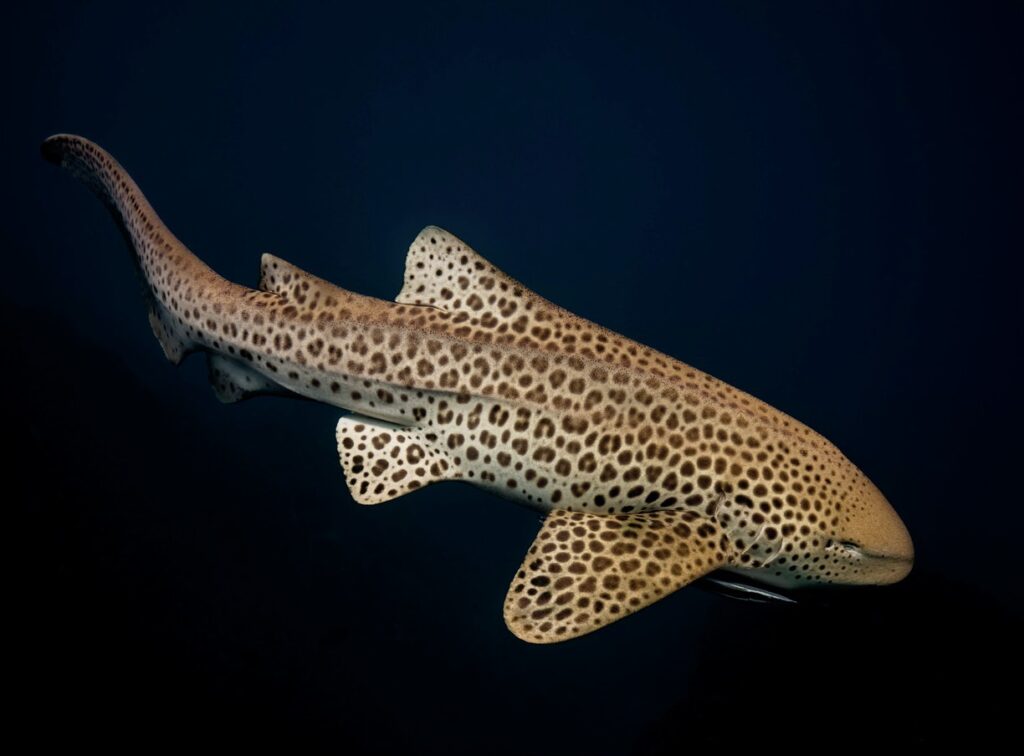
‘It’s hard to IQ Test whales. But all the latest science on their social structuring, emotional bonding and languages plus evidence from our own scientific criteria – brain size, spindle cell neurons, brain surface area – suggests there’s a good chance they’re more intelligent than we are.’
The catastrophic flip-side of the global cetacean coin is presented in the 80 minute documentary Collision (filmed in Chile, Patagonia, Greece, the Mediterranean, Sri Lanka, US Canada and more). This film presents a much darker story: ‘We may not be killing whales directly as we were during industrial whaling. But we’re still killing them indirectly in large numbers through shipping and fishing entanglement.’
‘This film is primarily about the shipping. Virtually everything we have is from somewhere else: phones, couches, TVs, clothes. We enjoy our consumer lifestyles and the convenience of everything being ordered on the phone and shipped to our doors. Everything gets shipped.‘
‘There are thousands of giant ships moving around the ocean at any one time with at least 12 critical areas of the world where the shipping lanes are right on top of whale aggregation sites. Those populations are in critical danger from ship strike. These huge vessels are moving fast and don’t even register when they hit a whale.’
The Darker Side of Cetacean Conservation
‘Sperm whale numbers in the Hellenic Trench off Greece have halved in the last decade, primarily due to ship strikes. This film covers similar problems in other regions. Serious legislation and regulation are needed to save some populations that are in rapid free-fall towards extinction.’
You can learn more about Scott’s photography, cinematography and whale tours at scottwilsonimagery.
This article was originally published in Scuba Diver ANZ #52.
Subscribe digitally and read more great stories like this from anywhere in the world in a mobile-friendly format. Link to the article



